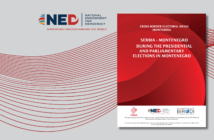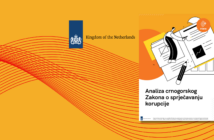The Law on Free Access to Information is one of the most important tools of the NGO sector and the media for monitoring the work of institutions and detecting corruption. In mid-2017, amendments to the Law on Free Access to Information were adopted, which greatly worsened access to information held by the state authorities.
The aim of this publication is to point out the issues in the implementation of the Law on Free Access to Information in areas that are of particular corruption risk. It contains case studies and extracts from important judicial practice established before and after the amendments to the law.
First chapter presents key issues related to access to information on public spending, including payments from the budget, but also public procurement, as well as state aid.
Second chapter is dedicated to tenders for the sale and long term lease of state property, while the third chapter provides an overview of access to information on the work of state funds and companies.
Fourth chapter focuses on the availability of data on public officials and related persons, and in particular information on their property. The last chapter presents cases related to access to data on private companies that are of special importance for the investigation of corruption.
- Complete publication download HERE (PDF)



